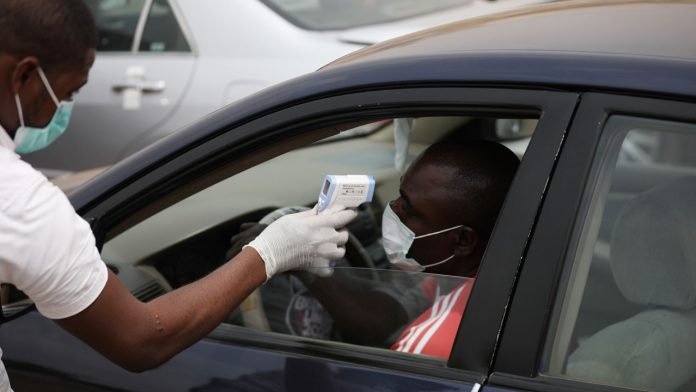Private hospitals in Lagos have revealed receiving at least five patients with suspected symptoms of the virus in their facilities.
This comes as the number of confirmed coronavirus cases in Nigeria rises, with fear that the infection rate could get worse.
According to the health workers, the patients were identified at the entrance gate of their facilities during a compulsory health screening required of any patient accessing their facilities for healthcare before they are allowed to come in, PUNCH reports.
At the Eko Hospital, Ikeja, Lagos, Acting Chief Nursing Officer, Mrs. Fidelia Anele, told PUNCH the hospital had seen a suspected case of coronavirus.
Anele said, “We have put measures in place to screen every patient at the gate before he/she is allowed to enter the hospital. We check their body temperature and the instruction is that any temperature above 37.5’C, a medical professional should be alerted.
“We have a form that every patient accessing our facility must fill out. It contains their name, travel history and health issues.
“But since we started, we have only seen one suspected case of COVID-19 at the gate. And immediately, he was directed to go to the Mainland Hospital, an infectious facility at Yaba, Lagos, which currently houses persons undergoing treatment for COVID-19.
“That was the only suspected case that we have seen so far,” she explained.
At R-Jolad Hospital, Gbagada, Director of Nursing Services of the private secondary healthcare facility, Bolanle Ipaye, said the hospital had seen three suspected coronavirus cases who came to the hospital on their own for medical examination, having traveled out of the country recently.
“So far, we have only identified three suspected cases and we sent them to the Nigeria Centre for Disease Control.
“They are quarantined at home and are also being followed up by NCDC. They told us that the NCDC came to take their blood samples for testing from home. So, officially, we have three suspected cases.
“We screen all our patients outside before they are allowed into the hospital, that was how we identified them.
![]()










